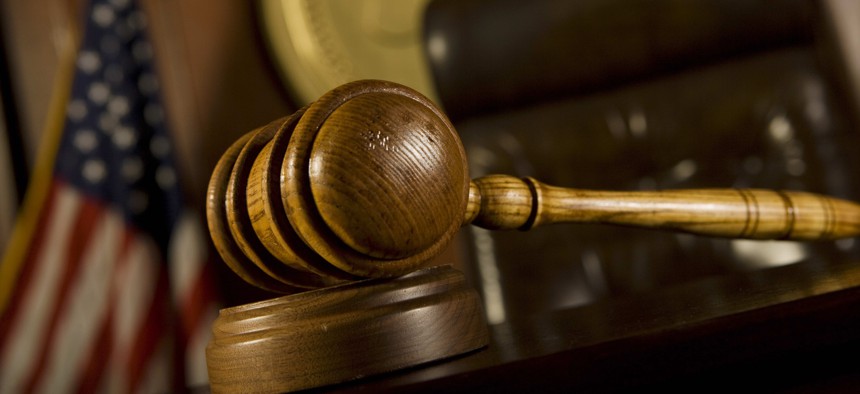Half of Americans Dealing With Civil Law Problems, Survey Finds

Shutterstock

Connecting state and local government leaders
A quarter of respondents described two or more circumstances that had the potential to land them in court over a year's time, for issues like overdue debts, child custody disputes and evictions.
Tens of millions of Americans have difficulties each year like overdue debts, child custody disputes, eviction and home foreclosure that fall within the bounds of the nation’s civil legal system.
New survey findings The Pew Charitable Trusts published Tuesday offer some additional perspective on just how pervasive these types of problems are. The results show that 47% of households reported that they had dealt with at least one civil legal problem during 2018. Add traffic citations and that figure rises to 56%.
One quarter of the respondents described dealing with two or more civil legal problems in the 12 months leading up to the survey.
A caveat with the study is it did not ask about the severity of problems people were having, whether respondents considered those problems to be legal matters, or how they were addressing the issues. So it's not clear what share of people who reported an issue ended up in court.
The leading issue people reported, other than traffic tickets, was child custody or guardianship of a family member. Sixteen percent of survey respondents said they or someone in their household had a situation involving these matters arise in the year before the poll.
Other common issues included: disputes tied to goods or services (15%); and issues with credit, loans, or debt (13%).
Renters, as opposed to homeowners, and people who were injured or ill were more likely to have problems, the survey also found.
The survey incorporated responses from 1,002 people. It was conducted last December by phone, in English and Spanish, and has a margin of error of +/-3.6 percentage points.
Pew has said previously that about 30 million Americans, or around 9% of the nation’s population, runs into civil legal problems each year without assistance from a lawyer.
Civil justice has also been getting attention from the Democratic-aligned think-tank Center for American Progress. Maha Jweied and Karen Lash, fellows with CAP, wrote about the issue in September.
People often end up in civil court or administrative proceedings, they say, "because they do not recognize that they have a legal problem before it is too late and lack the information or help they need to avoid having to be there in the first place."
"The majority of low- and moderate-income Americans rarely think that their problems have legal solutions," Jweied and Lash add.
One way civil cases are different than criminal legal proceedings is that courts typically do not appoint a lawyer for people who cannot afford one. There are legal aid organizations that can help people out, but the groups tend to have a limited number of attorneys.
Jweied and Lash point to examples of how many people lack legal representation for various civil justice issues in different states—90% of domestic violence litigants are self-represented in Arizona, and the same goes for 96% of tenants in tenant-landlord disputes in Hawaii.
Erika Rickard, who works on civil justice research at Pew, suggests that a takeaway from the survey is that improving the quality and availability of legal information could be helpful.
Pew has promoted the idea of online “legal assistance portals” that people can turn to when seeking legal information. Examples include websites like Michigan Legal Help and LawHelpMN, in Minnesota.
A full copy of the new survey results from Pew can be found here.
Bill Lucia is a Senior Reporter for Route Fifty and is based in Olympia, Washington.

NEXT STORY: For Public Health Agencies, Hiring in Competitive Field is Particularly Challenging





